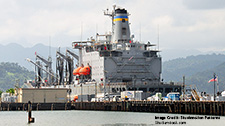ASEAN and Conflict Management: The Need for a High Council
Ramses Amer
This year the Association of Southeast Asian Nations (ASEAN) will formally establish the ASEAN Community, which is set to enhance regional community building among its member states. Ramses Amer makes the case that more than ever the formal establishment of the High Council of the Treaty of Amity and Cooperation in Southeast Asia (TAC) is essential if the Association is to enhance its conflict management mechanisms. Failure to do so will represent a continued shortcoming in the ASEAN framework for regional collaboration.
Related Publications
-
Navigating the Indo-Pacific: How Australia and the EU Can Partner for Peace, Stability, and Prosperity
To navigate the choppy waters of the Indo-Pacific, the EU and Australia must be on the same wavelength regarding shared interests in rules, values, and an open and liberal economic […]
-
Taiwan-PRC Crisis: What Cross-Strait Conflict Could Cost Europe
The escalating tensions between Taiwan and China pose significant economic and strategic challenges to the European Union, such as the inaccessibility of Taiwanese inputs, market, and capital. This issue brief […]
-
EU-Thailand FTA Negotiations: IUU Fishing and Human Rights Remain Obstacles
Thailand’s fishing industry, which at its height saw as many as 200,000 migrant workers from neighboring Laos, Myanmar, and Cambodia caught in a brutal system of abuse, withered global criticism […]
-
Needed, a Framework to Protect Undersea Cables
In the data-driven world we live in, submarine cables are the arteries that connect nation-states and their people in literally every human activity, including trade, commerce, entertainment, and social interactions. […]
-
India-Japan-Philippines: A Strategic Maritime Trilateral or More?
Regional states like India, Japan, and the Philippines have been seeking cooperative solutions with other middle powers that can both counter the Chinese influence and fulfill other economic as well […]




